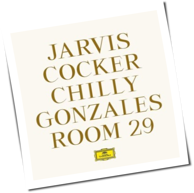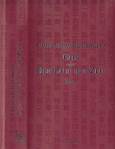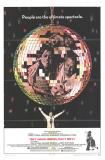Archäologie (DXCXXV) : Ich weiß, das ist nicht so
"Wenn Sie was ordentliches gelernt haben, dann brauchen Sie keine drei Minijobs."
Der CDU-Generalsekretär und die MinijobsTelepolis, 05. Juli 2017, Peter Mühlbauer
View on YouTube
Zur Erinnerung an einen ganz großartigen Künstler (der schon 1928 so viel mehr wusste als der rechtschreibschwache und genzdebile Generalsekretär), der aber wie so viele in diesem Deutschland nach '45 einfach vergessen wurde.
Just the names of some of Mischa Spoliansky’s interpreters tell something of his story – Marlene Dietrich, the Comedian Harmonists, Joseph Schmidt, Jan Kiepura, Mistinguett, Paul Robeson, the Queen’s Hall Orchestra, Ron Goodwin … The son of an opera singer, ‘Spoli’ (as he was affectionately known) was born in 1898. His sister Lisa was a pianist and a pupil of Schnabel, his brother Alex a cellist. Precocious Mischa found employment in Berlin cabarets, eventually working at the famous Schall und Rauch (Noise and Smoke) cabaret. Some of his songs will be familiar to modern listeners from Ute Lemper’s CD with Robert Ziegler (‘Berlin Cabaret’, Decca, 12/96). The ironic waltzes and tangos, the gipsy violins and harsh-voiced diseuses all contribute to the familiar bittersweet nostalgia associated with Berlin in the 1920s.
Spoliansky was instrumental in helping Marlene Dietrich to find her own vocal style – when she auditioned for his revue Es Liegt in der Luft in 1928 he spent hours with her trying out the songs in different keys until they found the right tone. In their second show together, Zwei Krawatten, she impressed Josef von Sternberg so much that he cast her in Der blaue Engel, and the rest is history. Spoliansky’s songs are less jazz-influenced than those of his contemporary, Frederick Hollaender (himself the subject of an earlier two-CD set in this series). Whereas Hollaender used the texts of Kurt Tucholsky, Spoliansky was most often teamed with Marcellus Schiffer. They could be bitingly ironic, as in songs for Schiffer’s wife, Margo Lion, but equally go for high-flown romance in songs like Heute Nacht oder nie! Margo Lion is heard in recordings from the 1920s as well as two from 1977 when she and Spoliansky appeared in concert at the Berlin Festival. Their exuberance is impressive, but when Spoliansky sings his own "Auf Wiederseh’n", a whole world of regret and loss is distilled into one little song. (Zero G Sound)

Mischa Spoliansky - A Brief History
Marlene Dietrich sings Spoliansky's "Love Is Lyrical"
»Wie werde ich reich und glücklich?« von Mischa Spoliansky
gebattmer - 2017/07/05 21:04



























































Trackback URL:
https://gebattmer.twoday.net/stories/1022625354/modTrackback